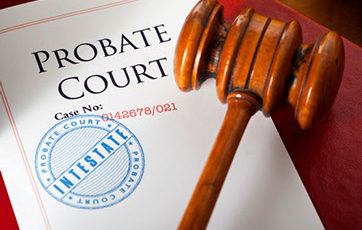THE LEGAL DOCUMENTS THAT WILL SAVE YOU IN EMERGENCY SITUATONS

COLLEGE BOUND KIDS- EXPECT THE UNEXPECTED!
So your child has officially become an adult and ready to embark on a new journey- college! Congratulations! This is a huge milestone in your teenager’s life as well as a time of pride and concern for you as a loving parent. Your child is about to spread his or her wings leaving the family nest of security and safety.
What you need are eyes of a hawk in establishing a solid plan that will safeguard your teenager against any unexpected event that could place them in medical or financial peril. There are legal documents that should be prepared by a professional South Florida estate planning attorney who is familiar with the goals you wish to accomplish for your family. Your legal eagle understands the importance of a healthcare surrogate, durable power of attorney, and a living will.
The designation of a health care surrogate authorizes you to get information from a hospital or a doctor about your child. You will not be able to obtain this information once your child is 18 years old unless you have a document permitting you to do so. In addition, your child may be unconscious and unable to give permission. Florida’s HIPPA laws prevent the dissemination of medical information to others unless there are written directives authorizing the permission.
A durable power of attorney is an agreement that allows you to control your child’s financial needs. It can be drafted to allow you to access your child’s bank account in case you need to pay his or her bills, restrict spending, or replenish the account.
A living will is a document that a person uses to make known her desires regarding life-sustaining treatments. Although not the most palatable of topics, it will give you peace of mind with medical decisions you may have to make for your child in the event of an untimely illness or accident.
Keep Calm and Prepare for April Fools.
April Fools is one week away and for some this means it’s time to brace yourself. Maybe you have children that scheme all year or perhaps you are married to the ultimate prankster – whatever your situation may be, it’s time to prepare for a possible heart attack and get your estate plan in place today.
A properly executed estate plan will allow you to remain in control, to some degree, either during times of incapacity or even after you’re long gone. By executing some important documents, you can rest easy knowing who will raise your children, how your children’s inheritance will be managed and where everything will be going. Some important documents to consider include:
- Revocable Living Trust – Whatever assets held in trust will avoid probate, saving your loved ones the money and hassle. The trust will also direct the trustee to manage and distribute your assets according to your terms.
- Last Will & Testament – Nominate your Personal Representative, choose a Guardian for any minor child, and add any burial or cremation requests.
- Durable Power of Attorney – Nominate an individual to make financial decisions on your behalf or qualify you for public benefits, should you not be able to do so yourself.
- Living Will – Advanced directive or “pull the plug” document. Allows your healthcare surrogate to give the doctor the “ok” to pull the plug if you are being kept alive by artificial means.
- Designation of Healthcare Surrogate & HIPAA Release – Designate the individual of your choosing to make important healthcare decisions on your behalf, in the event you cannot do so yourself.
Don’t just prepare for the anticipated pranks coming next week – prepare for your future and family today! Call (954) 944-2855 for your free consultation.
For more information on Estate Planning, Asset Protection, and Probate Administration visit our website at www.wfplaw.com.
It’s A Wild World. Are You Protected?
2017 – New You. New Estate Plan.
A new year typically brings change for us Americans. Some of it is intentional change and likely part of our “New Year’s Resolutions.” Other changes tend to be natural life changes such as birth of a child, a marriage, perhaps a divorce, an inheritance or even the death of a loved one. It’s because of these changes that your estate plan should be reviewed every three to five years. Your estate plan should continue to accomplish whatever your goals may be.
When considering how to property plan for your future estate planning is a natural first step. It’s crucial to nominate guardians on behalf of minor children, designate someone to continue to pay your bills and make important healthcare decisions for you, should you be unable to do so yourself. Estate plans also allow the grantor (that’s you!) to remain in control of your assets, deciding who will receive what and how much their share will be. Once the plan is in place it should be reviewed every 3-5 years, or sooner if you experience a significant life change. Some changes that should prompt you to revisit your estate planning attorney include:
Divorce/Remarriage: If you are recently divorced then it is a good idea to schedule time to meet with your attorney to review your documents. Not doing so could result in your ex-spouse receiving assets at your death, making important healthcare decisions for you while you are ill or recovering in a hospital or it could mean that they will have access to your financial accounts. If you are considering getting remarried, then you will want to update your estate plan to be sure that your ex-spouse is long gone and that your new spouse is provided for.
Birth of a Child: Life changes dramatically when a child is born and so do your priorities. All parents can agree that the wellbeing of their children is important. A proper estate plan will designate guardians to care for your children and describe what you will leave to them and how they will receive it. Tailor your plan to allow your child to have enough money to attend college, pay for their dream wedding or put a down payment on a home. You may even set restrictions within your trust allowing your child to have control over their inheritance only upon reaching a certain age.
Death of A Loved One: Sometimes the individual you choose as your beneficiary or nominate as either your Healthcare Surrogate or Durable Power of Attorney will predecease you. In the event that this occurs and you don’t have anyone else named in your documents, then you will need to schedule an appointment with your estate planning attorney to make some minor adjustments.
Inheritance: Inheriting a large sum of money may overwhelm those who wish to either invest it or protect it. It’s important to sit with a qualified estate planning attorney who can answer all of your questions and provide you with the best possible solution.
Call the attorneys at Wild, Felice & Partners for your free consultation at (954)944-2855.
It’s A Wild World. Are You Protected? SM
PROBATE
You know how the old saying goes: what you don’t know can’t hurt you. When it comes to the probate process in Florida, what you don’t know might not hurt you but it certainly will hurt the loved ones you leave behind. Florida’s probate system is both a slow and expensive process that can elevate an already stressful and sensitive situation. It’s important that everyone not only understand what probate is but how the process can potentially impact the loved ones they leave behind.
Probate is the legal process of proving your last will and testament in court. Unfortunately, even a small estate could take up to a full year to be administered due to a high number of cases passing through the court system. Smaller estates are those that are worth less than $75,000 and this type of administration is referred to as a Summary Administration. If your estate exceeds $75,000 then your family will have to petition the court for a Formal Administration and, in most cases, should be prepared to wait longer than a before distributions will be made. This can be financially burdensome and extremely stressful for the family. Luckily, there are ways in which you can prepare now so you family doesn’t have to deal with probate later. Owning assets jointly will allow them to pass free of probate. Either holding property as a married couple (Tenants by the Entireties) or as Joint Tenants with the Right of Survivorship will allow the property to pass immediately to the surviving owner. Beneficiary designation (such as with a life insurance policy) is another great way to avoid probate as well as a pay on death or transfer on death designation (with banking and brokerage accounts, as an example). Perhaps one of the most popular ways to avoid probate is to create a living revocable trust which will hold your assets for the named beneficiaries and pass free of probate. A trust as many additional benefits, such as choosing how and when your assets will be distributed, asset protection for the beneficiaries against unsecured creditors, the ability to keep you assets within the family for generations to come as well as planning for individuals with special needs. With so many alternatives available probate certainly does not have to be part of your future.
Remember, probate offers no real benefit for those family members that you leave left behind. It tends to cause a great deal of stress and frustration which is why you should consider avoiding it all together. Call the office of Wild, Felice & Partners today for your free consultation at (954) 944-2855.
For more information on Probate, Estate Planning, and Asset Protection, visit our website at www.wfplaw.com.
It’s A Wild World. Are You Protected? SM
PUMPKIN SPICE ESTATE PLAN?
You may have heard the term “basic.” What does it mean to be basic? If you like your pumpkin spice latte in a holiday cup or really anything mainstream or popular then you may be considered basic. Being basic isn’t always a bad thing and having an estate plan in place may mean your basic too – well, not really but it should because being prepared should be more popular. Unfortunately, the idea of estate planning doesn’t create the urgency to grab your phone for a quick selfie with your attorney and post to social media – but it should! Instead of feeling all doom and gloom about the topic try to imagine the peace of mind both you and your family will feel from this positive experience. Creating an estate plan should be at the top of everyone’s priority list because what can possibly be more important than planning for the future of yourself and your loved ones?
Whether your estate is large or modest, protecting it for future generations should be a priority. Estate Planning is the process of deciding during your life how your property will be handled should you become incapacitated or how the assets will be distributed after you pass away. The most popular estate planning tool for accomplishing this the Revocable Living Trust. By creating a revocable living trust to hold your assets you are preventing your family from being subjected to the stressful and lengthy process of Probate Administration. Instead, the assets will be distributed directly to the beneficiaries that you designate and according the terms of the trust that you created. You can choose a different individual to manage your child’s assets until they have reached an age of majority, or any age that you deem appropriate. The revocable living trust will also provide the beneficiaries with asset protection against any unsecured creditors they may encounter such as divorce, bankruptcy or litigation.
For full protection of our clients, we also included the following documents with your Trust based plan:
Last Will and Testament: Nominate your Personal Representative, choose a Guardian for any minor child, and add any burial or cremation requests.
Living Will: Advanced directive or “pull the plug” document. Allows your healthcare surrogate to give the doctor the “ok” to pull the plug if you are being kept alive by artificial means.
Durable Power of Attorney: Nominate an individual to make financial decisions on your behalf or qualify you for public benefits, should you not be able to do so yourself.
Healthcare Surrogate & HIPAA Release: Nominate an individual to access your medical records and make informed decisions on your behalf, should you not be able to do so yourself.
Being “basic” is more than ok when the popular thing to do is plan for your future. Call the South Florida Law Firm of Wild, Felice & Partners today for your free consultation at (954) 944-2855. For more information on Estate Planning or Revocable Living Trusts, visit our website at www.wfplaw.com.
It’s A Wild World. Are You Protected? SM




